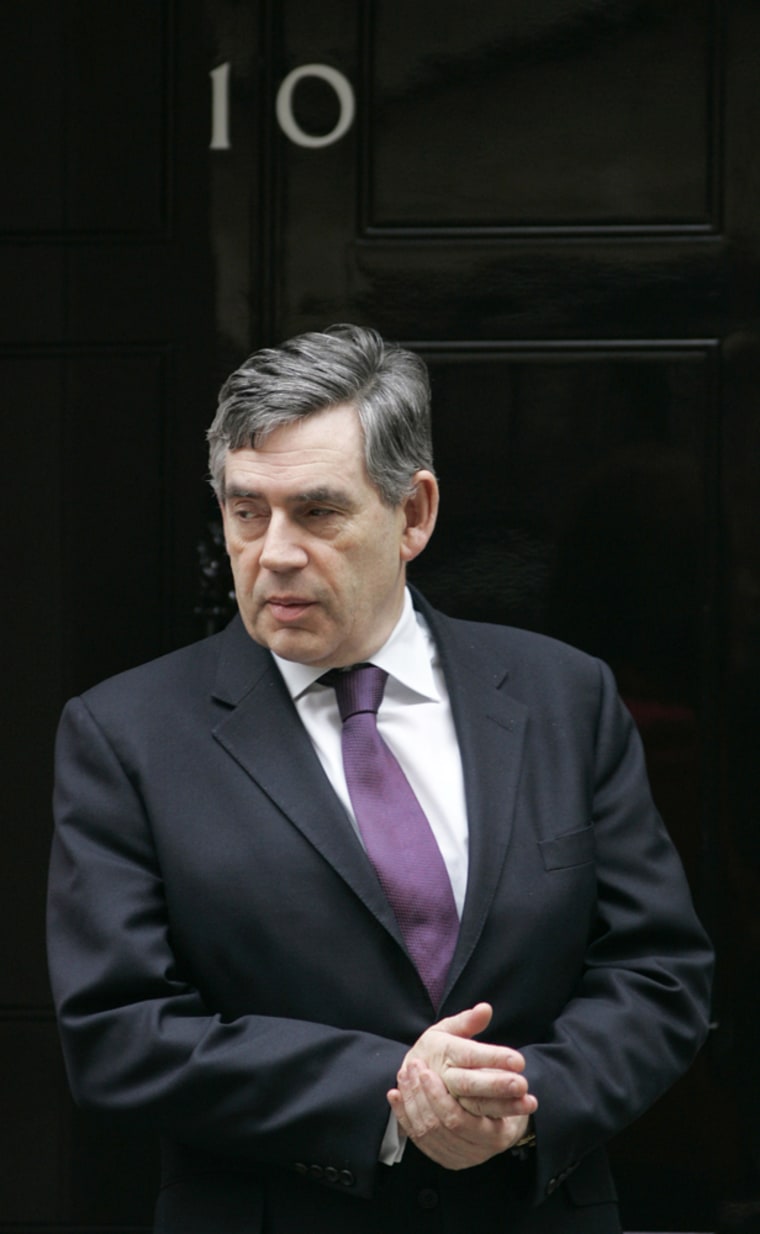British Prime Minister Gordon Brown suffered a stunning setback when his party was defeated in a Labour stronghold in Scotland. His leading opponent demanded Friday that Brown call an early national election.
The Scottish National Party overturned a big Labour majority in a special election Thursday to take Glasgow East, a working-class area that is longtime Labour territory. Voters were replacing Labour lawmaker David Marshall, who resigned for health reasons.
Labour won Glasgow East by more than 13,000 votes in the 2005 national election, but this time Scottish nationalist candidate John Mason won the seat by 365 votes.
Mason said his victory was "not just a political earthquake — it is off the Richter scale."
Brown said his party's electoral defeat would not sway him from his main task — trying to boost Britain's sagging economy.
"We had a great candidate. I'm sorry that she lost," Brown said Friday morning. "(But) my task is to get on with the task of getting us through these difficult economic times."
Record low in popularity
Labour is at a record low in popularity after more than a decade in power and with the economy slowing. Some in Brown's party have hinted that he should resign before the next national election, due by 2010.
On Friday, Britain's main opposition leader called on Brown to call an early national election.
"I think the prime minister should have his (summer) holiday but then I think we need an election," said Conservative leader David Cameron. "I think we need change in this country, and that's how change should come about."
Economy to blame?
International Development Secretary Douglas Alexander, one of Brown's closest allies, said voters were expressing frustration with the global economic slowdown and urged the Labour Party to stay united.
Defense Secretary Des Browne admitted Labour had had a "a bad night," but also blamed the economy rather than the prime minister.
"Time and time again, people raised the issue of rising food and fuel prices," Browne told the British Broadcasting Corp.
